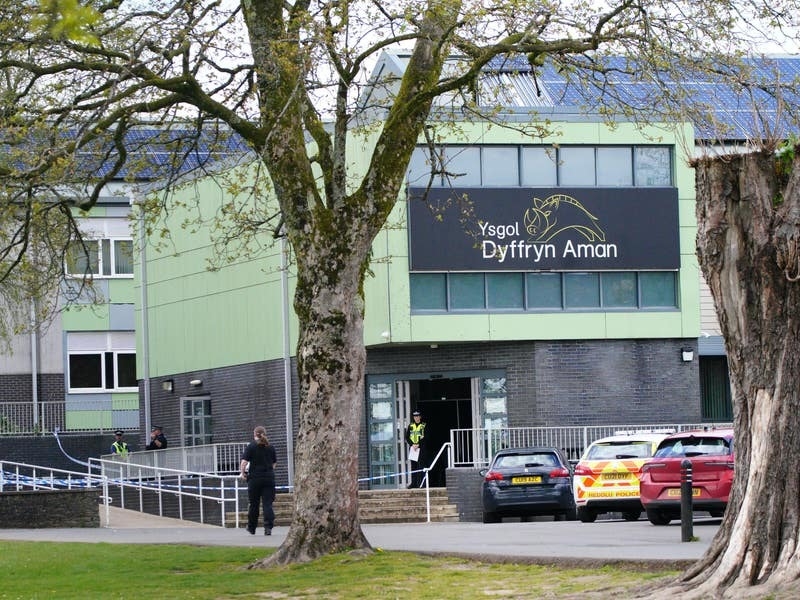Chamber of Commerce president Jennifer Carnegie says people want to know whether the Island’s response is succeeding in keeping people out of hospital, and why overall infection numbers, rather than hospital admissions, seem to be driving policy.
Meanwhile, David Warr, a former Chamber president and the owner of Cooper & Co coffee merchants, said a ‘perfect storm’ of contact tracing, working from home and rising Covid cases was forcing hospitality companies to reduce their offering or close.
They spoke out following a major overhaul of the Island’s contact-tracing and testing system after rapidly increasing numbers of positive cases and direct contacts caused the programme to become critically overstretched.
Speaking this week, Dr Ivan Muscat, deputy medical officer of health, admitted that the ‘finite nature’ of the system had led to his staff shifting their focus to try and suppress the virus rather than contain it.
Non-vaccinated arriving passengers only require a day-zero test and not a day-eight follow-up swab. People identified as direct contacts of infected people also only need a single test.
Figures released yesterday showed that, on Thursday, the Covid helpline received a total of 2,946 calls and that it took an average of 17 minutes for an operator to answer. The line was at its busiest between 8am and 10.30am.
Jersey currently has 2,053 known active cases while 10,924 people have been identified as direct contacts.
Mrs Carnegie has said the latest delay in the reconnection schedule will have a ‘detrimental impact on businesses in the hospitality and retail sectors’.
She said: There will be precious little left of a summer season with a long winter ahead so government support, which has been so successful so far, should be extended in these cases. Otherwise, jobs and livelihoods will be at stake. For businesses and the public to make informed decisions in relation to government recommendations, we need greater insights into the efficacy of the vaccine programme.
‘Is the programme working to keep people out of hospital? If so, what are the reasons for halting the progress we have all been working towards? If not, how significant is this new threat? We would like to understand why the focus is not on the low hospitalisation numbers, rather than the expected higher positive case results?’
The final easing of restrictions had been due to take place last month, but was delayed until Thursday 15 July before being pushed back again earlier this week. During an Ask the Ministers event earlier this month, Economic Development Minister Lyndon Farnham and External Relations Minister Ian Gorst both spoke positively about Thursday being Jersey’s freedom day.
Mr Warr said that the government needed to have mechanisms in place to assist small business when Covid announcements were made due to the ‘economic consequences of those decisions’.
‘Businesses don’t have the opportunity to say “we’re working on it”. We have to deal with the reality of losing footfall literally overnight and trying to react to that as quickly as we can,’ he said.
He added that the track-and-trace system had led to many staff isolating as it was the ‘responsible thing to do’ while the impact of children being identified as contacts had meant some were unable to find childcare at short notice, forcing them to take time off work.
‘It is a perfect storm for many business owners,’ he said. ‘We just want to see a bit of light at the end of the tunnel. The idea of having people double jabbed was to keep people out of hospital. We have done that but what has changed? They [the government] have moved the goalposts.’
Earlier this week, representatives from the events industry said the delay would be devastating to their sector.
Senator Farnham admitted that it was ‘hugely frustrating that the restrictions had to be extended’ and said discussions about business support for those industries most impacted were continuing.
‘Right the way through the pandemic, we have said we will make sure there is appropriate business support,’ he said. ‘I have asked officers to look at the packages and make sure they are still appropriate and that how the new guidelines are likely to impact on businesses further. Businesses will argue that the support will never be enough to replace what they have lost and I understand that.
‘We have to look at how we get those businesses through the winter. Those sorts of businesses would be doing the majority of their trade now and that would give them some surplus to see them through the winter. We realise that we might have to provide some support for those businesses and those are areas we are looking at,’ he added.






